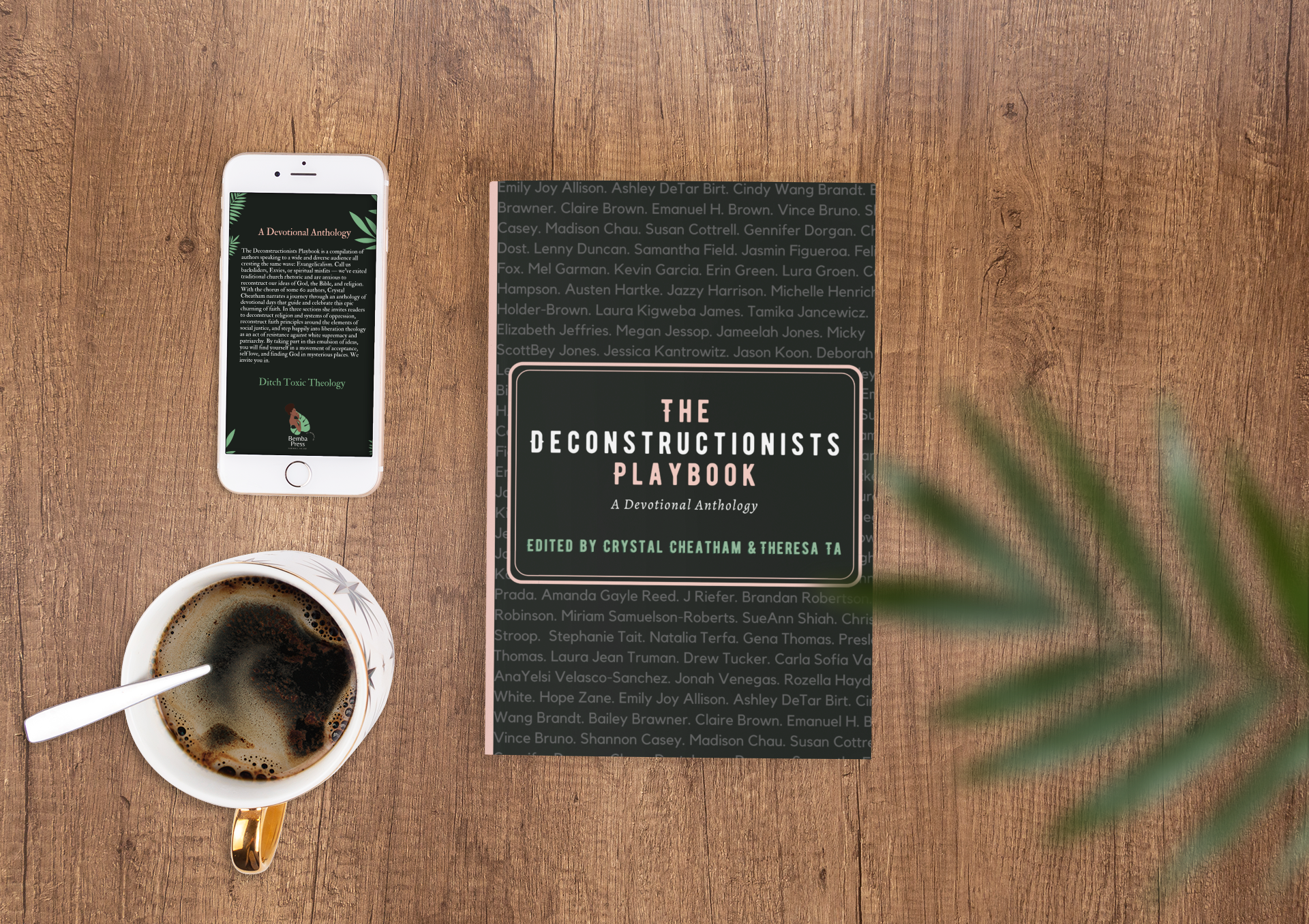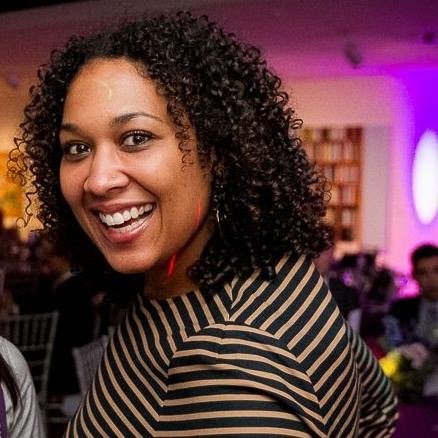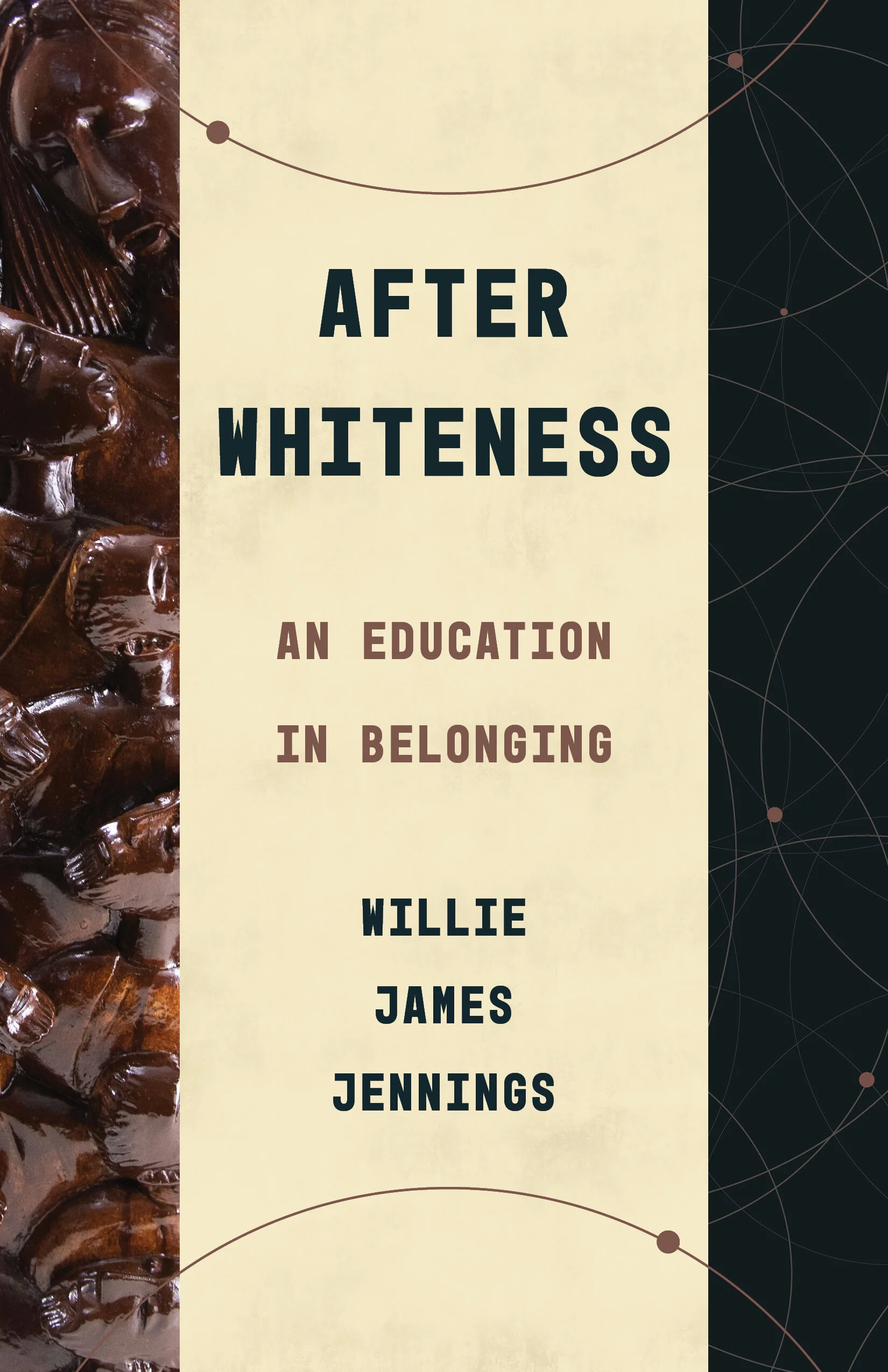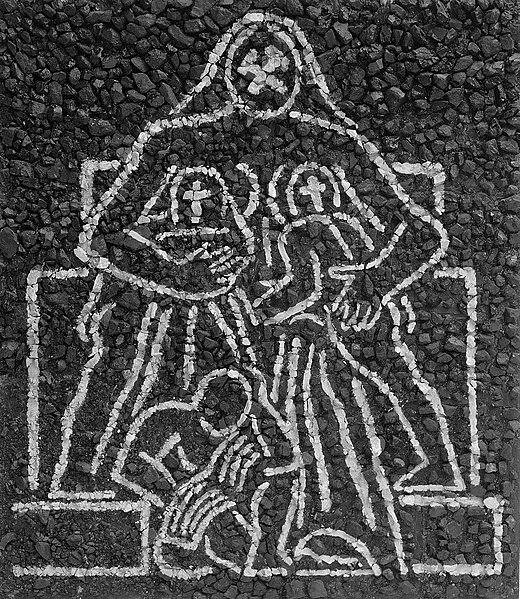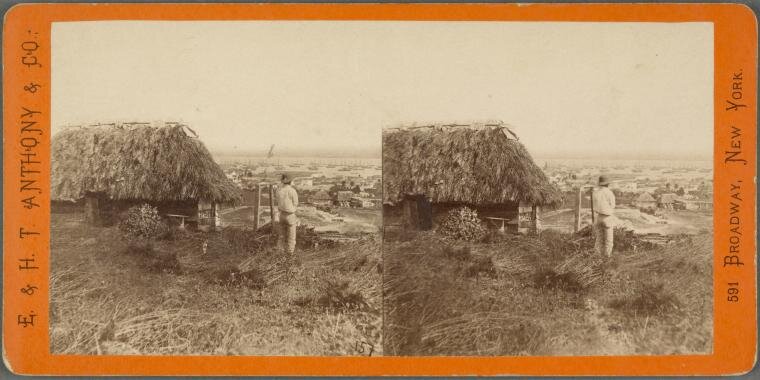Not Your Typical Devotional
HTI Scholar Jasmin Figueroa talks to activist/entrepreneur Crystal Cheatham about her work creating digital progressive Christian content
HTI Scholar Jasmin Figueroa talks to activist/entrepreneur Crystal Cheatham about her work creating digital progressive Christian content
Promotional image for the ebook edition of The Deconstructionists Playbook (Bemba Press, 2021), edited by Crystal Cheatham and Theresa Ta. Image Courtesy of Our Bible App
Crystal Cheatham is an LGBTQ rights activist with a focus on religious liberty. She is founder of Our Bible App and co-editor of The Deconstructionist’s Playbook (Bemba Press, 2021), an anthology of devotionals by and for progressive Christians and people in Christian adjacent spaces. In this episode of OP Talks, Cheatham talks to HTI Scholar Jasmin Figueroa about the physical, emotional, and mental toll of working to create more inclusive Christian spaces. “We want to build community. We want you to find your community,” says Cheatham. “And when you start to deconstruct your faith, people look at you a little weird: ‘What are you doing? Are you a heretic? Are you going to hell now?’ So we want to be able to give [deconstructionists] a soft place to land.”
SAMPLE DEVOTIONALS
This is not your typical devotional. Until now, it has been extremely difficult to find devotionals, podcasts, and resources that aren’t overtly conservative in nature. Our Bible App supports the belief that spirituality is a spectrum and that faith is a journey. At its core, the holy texts were written to be inclusive of all of God’s creation, especially those on the margins. These devotionals are explicitly queer-affirming, anti-racist, pro-feminism, and encouraging of interfaith inclusion, bringing together a once fragmented community of spiritual wanderers.
-
Day 1 of 3: In the Image of the Divergent God
So God created human beings in his own image; in
the image of God he created them, male and female he created them. -Genesis 1:27 (NLT)Genesis, the first book in the Bible, tells us that at the beginning of humanity’s creation, God created us all in God’s own image. Yes, all of us. Not just the male, the cis, the heteronormative, the white, the able…or the neurotypical. All of us.
For too long those whose cognition, perception, and social styles have been seen as diverging from the norm, as somehow intrinsically flawed or broken, have been exempted from the Imago Dei – the image of God. Just like those with poor, black and brown, disabled, trans and queer bodies, we have been othered, even while some of us – those deemed useful – have been lauded for our gifts. The stories told about us are of a people who are, because of our brain wiring, somewhere on the margins of the Kingdom.
But Genesis tells us a different story. Genesis tells us, in unambiguous terms, that we are all created in God’s image. This is an entirely different reality from simply saying that God loves us all, or that we are all His/Her/Their children. To say that we are created in God’s own image means not just that we are like God but that God is like us.
That God, in all God’s spectacular rainbow glory, is a spectrum too. Neurodiverse. Thinking, perceiving, and relating in myriad wonderful possibilities. As autistic people, or people with ADHD, synesthesia, sensory processing disorders, dyslexia, dyspraxia, Tourette’s or any other form of neurodiversity, we are an integral part of the Imago Dei.
It would not be complete without us.
God in whose image we are created, today I remember that as a member of the neurodiverse community, I am beautifully and wonderfully made in your image. We are not broken, but beautiful; not flawed, but flawless; not Other but Beloved. Amen.
-
Day 1 of 6
Ecclesiastes 3
For everything there is a season, and a time for every matter under heaven:
a time to be born, and a time to die;
a time to plant, and a time to pluck up what is planted;
a time to kill, and a time to heal;
a time to break down, and a time to build up;
a time to weep, and a time to laugh;
a time to mourn, and a time to dance;
a time to throw away stones, and a time to gather stones together;
a time to embrace, and a time to refrain from embracing;
a time to seek, and a time to lose;
a time to keep, and a time to throw away;
a time to tear, and a time to sew;
a time to keep silence, and a time to speak;
a time to love, and a time to hate;
a time for war, and a time for peace.What gain have the workers from their toil? I have seen the business that God has given to everyone to be busy with. He has made everything suitable for its time; moreover, he has put a sense of past and future into their minds, yet they cannot find out what God has done from the beginning to the end. I know that there is nothing better for them than to be happy and enjoy themselves as long as they live; moreover, it is God’s gift that all should eat and drink and take pleasure in all their toil. I know that whatever God does endures for ever; nothing can be added to it, nor anything taken from it; God has done this, so that all should stand in awe before him. That which is, already has been; that which is to be, already is; and God seeks out what has gone by.
Moreover, I saw under the sun that in the place of justice, wickedness was there, and in the place of righteousness, wickedness was there as well. I said in my heart, God will judge the righteous and the wicked, for he has appointed a time for every matter, and for every work. I said in my heart with regard to human beings that God is testing them to show that they are but animals. For the fate of humans and the fate of animals is the same; as one dies, so dies the other. They all have the same breath, and humans have no advantage over the animals; for all is vanity.All go to one place; all are from the dust, and all turn to dust again. Who knows whether the human spirit goes upwards and the spirit of animals goes downwards to the earth? So I saw that there is nothing better than that all should enjoy their work, for that is their lot; who can bring them to see what will be after them?
As I thought about how to talk about managing the dark and cold months of fall and winter, I was drawn to this passage. More than any other Scripture, this passage focuses me on the changing of seasons and on the very nature of time itself. God has “put a sense of past and future into our minds.” Isn’t that curious? What would it look like to live without that sense? Would we simply be focused on the present moment, oblivious of causes and consequences? That doesn’t sound all bad!
Sometimes, I think this is the way my dog lives—carefree and constantly curious. Still, even she has been conditioned by the past. As a meditator, I suppose that I get brief glimpses of “timelessness” where I am completely focused on the here and now, grounded in my body, and aware of the world around me. Those moments, however, are fleeting; if we are to take this passage seriously, those moments—refreshing as they are—ignore the God-given sense of time that we all possess for some purpose.
This chapter hints that time is a double-edged sword, giving both occasion for laughter and tears, love and hate, birth and death. At one moment I can be marveling at the ways that my children are growing and be caught off guard by my own mortality in the next . This is the “gift” of time that has been placed within us. It tells us where we’ve come from and where we’re going. And this gift allows for us to do the critical work of storytelling and meaning-making.
As humans, meaning-making is our business. We want to know that our struggles have purpose. We want to know that our pain can be redeemed. It’s when life slows down that we begin to ask ourselves why things are the way they are. This questioning is a good thing. It is part of the work we are called to do.
The work of reflection is critical to our spiritual lives. It is rare that we give ourselves the time and space to do such work, yet it is critical if we are to gain understanding of ourselves, our neighbors, and our world. Writer Brigit Anna McNeil wrote the following about the coming of winter months:
“This is a time of rest and deep reflection, a time to wipe the slate clean as it were and clear out the old so you can walk into spring feeling ready to grow and skip without a dusty mountain on your back & chains around your ankles tied to the caves in your soul.
A time for the medicine of story, of fire, of nourishment and love.
A period of reconnecting, relearning & reclaiming of what this time means brings winter back to a time of kindness, love, rebirth, peace and unburdening instead of a time of dread, fear, depression and avoidance”
My hope for these next few days is that this season can go from being a time of fear, depression, and avoidance to a time of love, rebirth, and peace. I hope that you will make the space necessary to do the deep reflection for this complicated time of year.
-
Day 1 of 7: Introduction
“You are the light of the world. A town built on a hill cannot be hidden. Neither do people light a lamp and put it under a bowl. Instead they put it on its stand, and it gives light to everyone in the house. In the same way, let your light shine before others, that they may see your good deeds and glorify your Father in heaven.”
—Matthew 5:14-16
Evangelism has always been a dicey topic among progressive Christians. Many churches, solely focused on preaching the gospel, seem intent on forcing the Bible down people’s throats and preach the importance of conversion, of convincing people to commit their lives to Christ. This mindset is reflected in preachers on street corners, harassing passers-by and telling them they will go to hell unless they convert. Historically, the Western church has used the gospel as a reason to commit atrocities, like the Crusades and colonising countries in the name of God. Missionaries banned people from speaking their own languages, forcing them to learn the Bible and reject their cultures in order to adopt the religion of their oppressors. For this and many other reasons, the whole concept of evangelism rubs me the wrong way, especially since growing up it was beaten into my head over and over again that the most important thing in our lives was to “bring people to Christ.” It feels manipulative, heartless, as if we care more about “bringing God glory” than about respecting the basic humanity of others. The idea that God wants Christians to treat people that way seems abhorrent to me. And if that was the God who I believed in, I wouldn’t want to be Christian.
Luckily that’s not the God of the Bible, and not my God. My God is the God of the oppressed, who loves all people and wants a relationship with us. But They don’t want us to be coerced into it. The whole point of the Bible and the thousands of years of reaching out to us and then sending Jesus to live among us is that She cares about us and wants to know us as a friend, not as some tyrant. That’s why if we want to keep our faith, we need to rethink the way we understand the gospel, go back to God’s word and realize how God really wants us to share Their love with people. In Matthew 5, among other famous sayings of Jesus, He talks about how His followers, God’s people, are meant to be like a lamp on a stand or a lit-up town on a hill, a metaphor which means that how we act should reflect God’s goodness and draw others to us. This is nothing like the evangelism and conversion we’ve been exposed to, where we go out and try to indoctrinate anyone we can get our hands on. Over the next few days, we’ll be looking at examples in the Bible of how this whole light on a stand thing worked, and think about how we can preach the Gospel without hurting the very people we want to help.
Take this time to think about what you’ve been taught about evangelism in the past. Did what you learn emphasize the value of every person regardless of their conversion to Christ? Or did it fall more under the forceful notion that they needed to learn about God no matter what or they’re going to hell? Either way, dwell on this, and consider the God you believe in. What do you think is the best way to share that God with others?
-
Day 1: What Is Spiritual Bypassing?
There is a time for everything, and a season for every activity under the heavens; a time to weep and a time to laugh, a time to mourn and a time to dance, a time to scatter stones and a time to gather them.
—Ecclesiastes 3:1, 4-5
Spiritual Bypassing is a term first coined by John Wellwood in his 1980s text, Toward a Psychology of Awakening. He defines spiritual bypassing as “spiritual ideas and practices to sidestep personal, emotional ‘unfinished business,’ to shore up a shaky sense of self, or to belittle basic needs, feelings, and developmental tasks.”
There is sure to be a season in our lives when we have manipulated spiritual practices to avoid engaging with our emotions, or at least know of those who have.
Manipulating spiritual practices to avoid confronting difficult emotions can take many different forms.
Wellwood offers the example of those who go on spiritual retreats to escape reality, and then return with a sense of enlightenment; on retreat, they escape a reality that asks them to confront their emotions. Not too long after returning, however, they are often triggered by the very thing they attempted to escape on retreat in the first place.
At its best, spiritual practices call us to be present and better our awareness of our self, of others, and our sense of placement in the world. At its worst, spiritual practices act as a defense mechanism or distraction and can actually disconnect us from our emotions and others.
As we practice eager waiting during Advent, we find ourselves anticipating more than just the birth of Christ. We are in eager anticipation for a vaccine, to reunite with loved ones, to let out a deep sigh when this pandemic is over. We have globally experienced a pandemic that has killed hundreds of thousands of people; with that, we have experienced global, communal grief. We grieve our loved ones who have died, lost experiences and celebrations due to self-isolation, the anxiety that undergirds daily life, the regular police shootings of BIPOC, civic unrest and uncertainty; the list goes on and on. It is tempting to lean on spirituality as a distraction from reality. As pandemic depression collides with seasonal depression in the winter months, any escape from reality can seem welcoming.
When we lean on spirituality as a distraction mechanism, we not only block ourselves from engaging with our emotions, we also deter others from expressing theirs. When we do this, we distance ourselves from our loved ones who attempt to express their grief and anxiety. We fail to be present with ourselves and with them.
One of the ways Christian people spiritually bypass their own emotions and others' is by relying on scripture that overemphasizes the good and fails to address the negative. We use scripture to brush off one another’s pain and hurt instead of engaging with it. When we use scripture to bypass an individual’s grief, we fail to engage and be present with them.
Often, scripture is taken out of context to ‘comfort’ someone who expresses anxieties and trauma. However, by putting the scripture in context, we come to know how it calls us to be present with one another in times of loss and grief.
Orient our hearts towards those who grieve this Advent season; let us recognize and engage our own grief and know it is done in community.
The Our Bible App platform offers the largest compilation of progressive faith-based content.
The Deconstructionists Playbook (Bemba Press, 2021) comprises selections from devotionals that have been published by Our Bible App.
After Whiteness
Dr. Teresa Delgado talks to Dr. Willie James Jennings about education in belonging and forming people who form communion
Dr. Teresa Delgado talks to Dr. Willie James Jennings about education in belonging and forming people who form communion
Dr. Teresa Delgado and Rev. Dr. Willie James Jennings discuss his most recent book, After Whiteness: An Education in Belonging (Eerdmans, 2020), the inaugural volume of the groundbreaking Theological Education between the Times book series. As the publisher notes, Rev. Dr. Jennings draws on "the insights gained from his extensive experience in theological education, most notably as the dean of a major university's divinity school—where he remains the only African American to have ever served in that role." In order to “tell the truth from deep down inside of it,” says Rev. Dr. Jennings, “I couldn't get to it just by standard academic writing. I can only get to it by drawing on all the sides of what it means to talk and write about life, but also all the sides of me.” In the book, these “sides” include vignettes, poetry, short stories, and analysis. “What I try to do is to bring people in through the back door,” he says. “I was an academic dean. I learned all the secrets. Yes, I cannot tell you the secrets, but I can tell you what they mean.”
This episode of OP Talks is part of the Theological Education between the Times (TEBT) series, an initiative out of HTI member school Emory University Candler School of Theology that "gathers diverse groups of people for critical, theological conversations about the meanings and purposes of theological education. The project begins with a recognition that theological education is between the times, on the way. And it works in the confidence that we do not walk this road alone."
In the tradition of bell hooks and Paulo Freire, Jennings’s insightful indictment of the church and university will be an ideal choice for group discussion…When the academy is not a home, but your skin, paying attention requires everything. A fearlessly candid diagnosis of the failures of the theological academy—its soul-killing cultivation of the self-sufficient man builder—Jennings’s poetic truth-telling nevertheless refuses cynicism’s surrender.
— Andrea C. White
Union Theological Seminary in the City of New York
Race, Religion, and The Republic
Felipe Agredano talks to Rev. Evang Freda Morrison, Dr. Andrea Johnson, and Dina Cervantes about the intersections
Felipe Agredano talks to Rev. Evang Freda Morrison, Dr. Andrea Johnson, and Dina Cervantes about the intersections
The Allegory of the Republic, after Daumier (coal on board, acrylic) by Balázs Kicsiny, 1990.
Source: Museum Ludwig-Museum of Modern Art, Budapest Collection
Kicsiny’s coal painting is based on La République (1848) by Honoré Daumier, an oil sketch submitted for a competition to define the "painted face of the republic" the year the French Republic was proclaimed. Commentary on Daumier’s sketch highlighted its ideals of a "'big woman'...a strong republic, nourishing and educating her children...[a] 'fertile, serene and glorious' republic claiming its descent from the first great republic which had abolished slavery; the republic whose flag had circled the world" (Musée d'Orsay).
In honor of National Women’s History Month, producer and Chicana/o Studies professor Felipe Agredano moderates a lively OP Talk among Rev. Evang Freda Morrison, history professor Dr. Andrea Johnson, and political strategist Dina Cervantes about the intersections of politics, religion, and race. The panel decries how politicians have weaponized single issues like abortion and stoked racial division in the name of God. Speaking from their unique political, religious, and racial perspectives, the panelists address what role the church should play in the United States today and how congregations should emulate Jesus’ teachings. The panel agrees that building community and compassion can propel this country forward, towards healing.
Join the LIVE VIRTUAL PANEL DISCUSSION & POST-TALK
5pm (PST) / 8pm (EST) - Wednesday, March 31, 2021
ZOOM FB LIVE @ https://www.facebook.com/FelipeAgredano1/
Cuban Literature in the Age of Black Insurrection
Dr. Elías Ortega-Aponte and Dr. Matthew Pettway discuss his debut book on how two 19th-century Cuban writers envisioned emancipation through the lens of African spirituality
Dr. Elías Ortega-Aponte and Dr. Matthew Pettway discuss his debut book on how two 19th-century Cuban writers envisioned emancipation through the lens of African spirituality
"View of the Harbor and Town of Matanzas from the Hill," 1870. Source: Schomburg Center for Research in Black Culture, Photographs and Prints Division, The New York Public Library Digital Collections
Dr. Elías Ortega-Aponte and Dr. Matthew Pettway discuss his debut book Cuban Literature in the Age of Black Insurrection: Manzano, Plácido, and Afro-Latino Religion (University Press of Mississippi, 2019). Dr. Pettway examines how the portrayal of African ideas of spirit and cosmos in otherwise conventional texts recur throughout early Cuban literature and became the basis for the antislavery philosophy of writers Juan Francisco Manzano and Gabriel de la Concepción Valdés (Plácido). With cultural roots in Puerto Rico and in Trinidad, respectively, Dr. Ortega-Aponte and Dr. Pettway engage in a conversation on AfroLatinidades that flows like, in the memorable words of 19th-century poet Lola Rodríguez de Tió, “two wings of the same bird.”
This book is an original study on the influence of religion in the writings of two nineteenth-century Cuban writers, that although very recognized and studied, have not been analyzed from the point of view of religion (Catholicism and African influenced)…This book will be of interest to students and scholars in Cuban studies, Caribbean studies, religious studies and African Diaspora studies.
—Jossianna Arroyo-Martínez, Chair/Professor, Department of Spanish and Portuguese and the Warfield Center for African and African American Studies at the University of Texas at Austin
Theological Imagination in Education
César ‘CJ’ Baldelomar, LL.M., J.D. and his mentor Dr. Hosffman Ospino survey possibilities
César ‘CJ’ Baldelomar, LL.M., J.D. and his mentor Dr. Hosffman Ospino survey possibilities
Salvation Mountain, a man-made visual environment created by Leonard Knight in the California Desert. Photo: April Morales
Catholic theologian Dr. Hosffman Ospino focuses on the dialogue between theology and culture, and the impact of this interchange upon Catholic theological education, catechesis, and ministry. In this episode of OP Talks, Dr. Ospino engages in conversation with his mentee César ‘CJ’ Baldelomar, whose “Toward a Critical Theological Imagination” examines the role of imagination in knowledge production and the need for a critical, decolonial engagement with theology. Published on Open Plaza throughout a summer of Black Lives Matter protests, Baldelomar's three-part series of essays “urgently calls for critical theology theorists in hopes of liberating imaginations to envision what never was…If this call is not taken seriously, then perhaps the only remaining solution is indeed to press the restart button on the entire theological—and by extension, academic—enterprise.”




